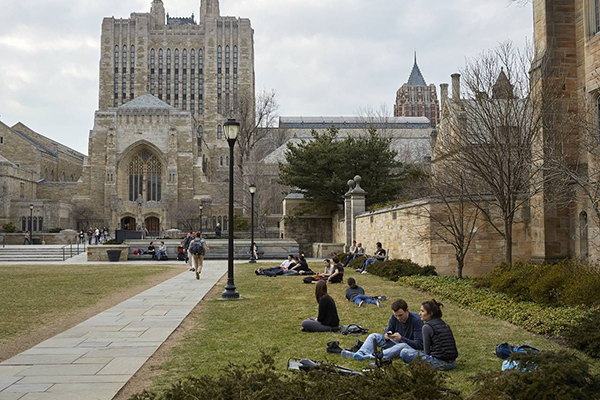Class News
David Swensen (Honorary '64) lauded again for investment prowess
Yale Endowment’s Venture Funds Hit Home Run
Investments in startups like Airbnb and Uber have shaped portfolio, earning it 92.7% per annum over past 20 years
The Wall Street Journal
April 7, 2016

for a higher educational institution in the U.S. after Harvard University
Yale University provided an unprecedented glimpse into how investments in startups such as Airbnb Inc. and Uber Technologies Inc. have shaped its endowment’s venture-capital portfolio, which earned 92.7% per annum over the past 20 years.
The Ivy League school’s endowment, with $25.57 billion in assets, recently split its private equity holdings into venture capital and leveraged buyouts. The move allowed returns to be captured separately in its latest public annual endowment report for the first time since at least 2001.
Yale’s venture-capital portfolio earned an annualized return of 18% for the 10 years ended June 30, outpacing the pool tracked by Cambridge Associates by 6.5% a year, according to the report. Leveraged buyouts generated an annualized 13.4% return over the decade, also outperforming the pool of such managers tracked by Cambridge.
Yale’s allocation to venture capital, 16.3% of assets as of June 30, was in excess of a 14% target. Yale’s venture footprint also was above the average allocation of 11% that higher educational institutions with more than $1 billion had in venture, according to data from the National Association of College and University Business Officers and Commonfund.
Yale is closely watched by other endowments as its chief investment officer, David Swensen, is widely credited for pioneering an investment approach that tilted institutional portfolios into a heavier proportion of illiquid assets. However, Mr. Swensen cautioned that the so-called “Yale model” only would succeed among investors with access to top-performing funds.
More players have crowded into private equity and venture funds in recent years, pushing up valuations of venture-backed companies. But some have questioned if unicorns — startup companies valued at more than $1 billion — are priced unrealistically, as mutual-fund managers have cut the value of some of these holdings.
The universe of unicorns include ride-sharing service Uber and home rental-business Airbnb, which Yale said were recent investments. The school’s venture-capital program also has invested in social-media companies Facebook Inc., Twitter Inc., and Pinterest Inc., as well as disappearing-message app developer Snapchat Inc. and Chinese online commerce company JD.com Inc.
Yale, which made its first venture-capital commitment in 1976, is one of the earliest institutional investors in the asset classes. Its first-mover advantage got it through the door of venture managers that profited from Amazon.com Inc., Google Inc., and Cisco Systems Inc. in the 1990s. Yale said its original $2.7 million investment in business networking service LinkedIn Inc. generated $84.4 million of gains after the company went public in 2011.
Yale has backed the funds of venture firms Andreessen Horowitz, Benchmark, and Greylock Partners. Its alumni network includes Henry McCance, who played a key role at Greylock; Roger McNamee, co-founder of Elevation Partners and a musician with the band Moonalice; and David Singer, of Maverick Capital Ventures.
Yale’s endowment is the second largest in assets for a higher educational institution in the U.S. after Harvard University.
A Yale spokesman didn’t respond to inquiries seeking comment.

